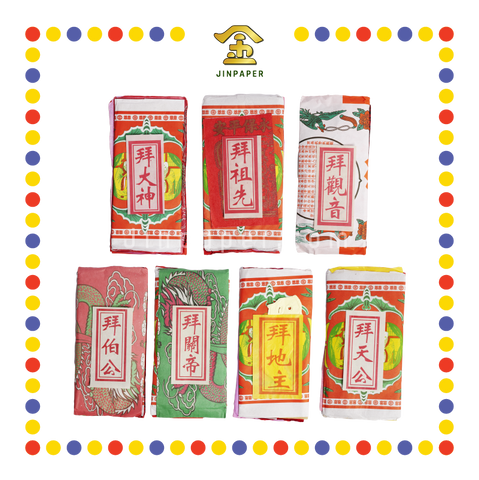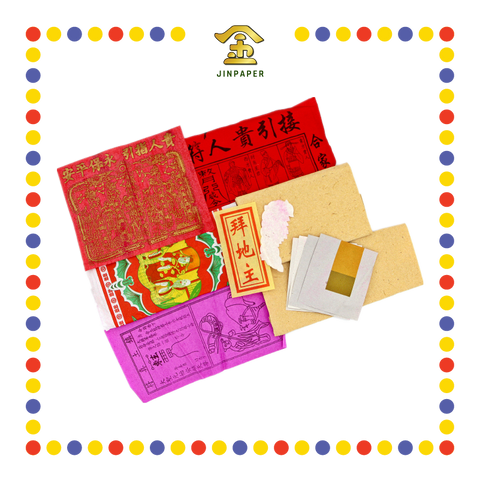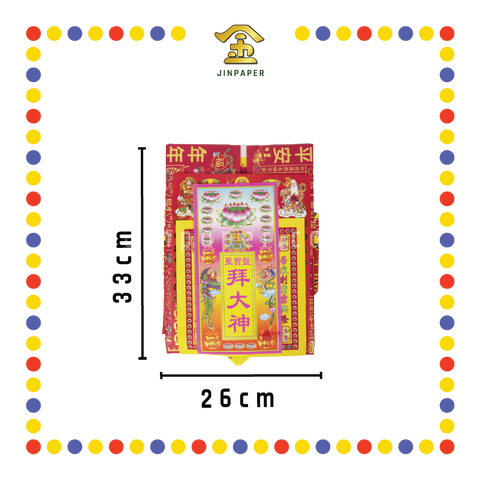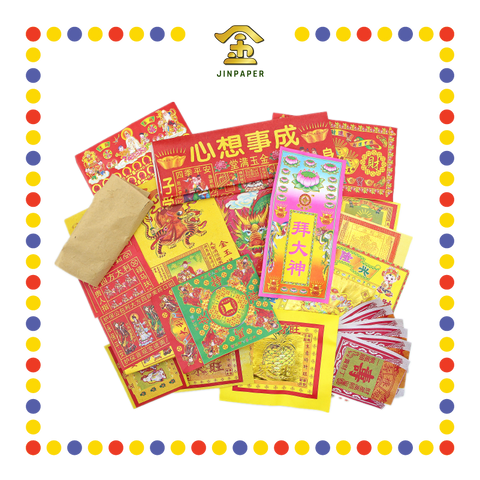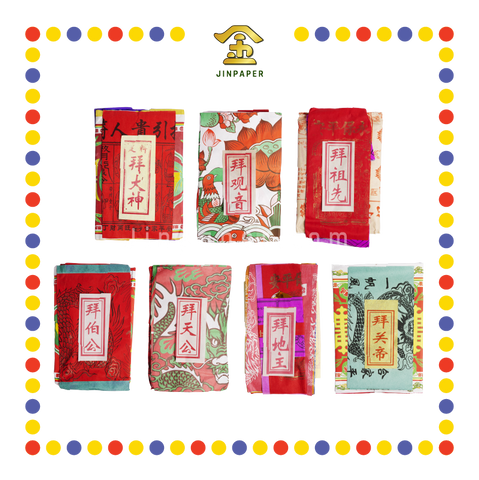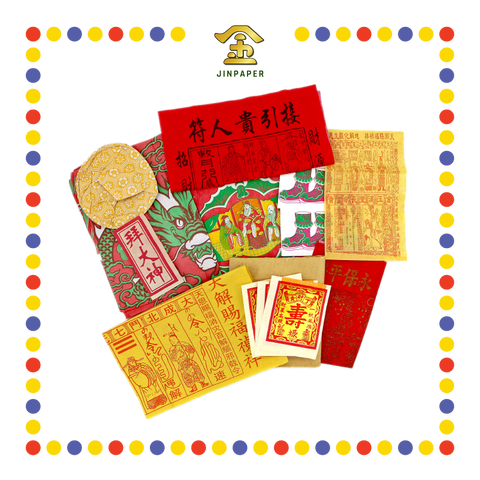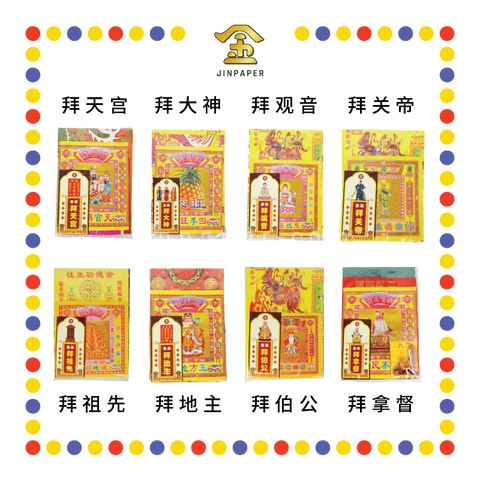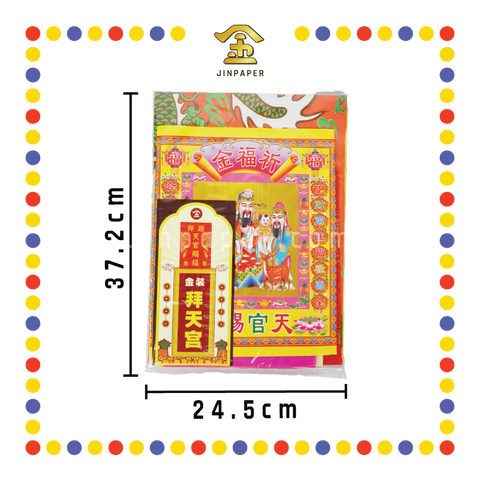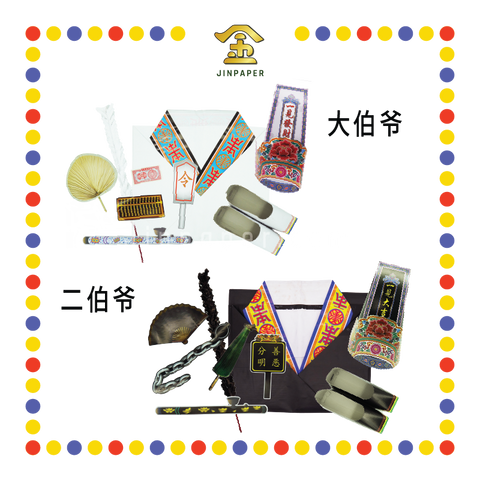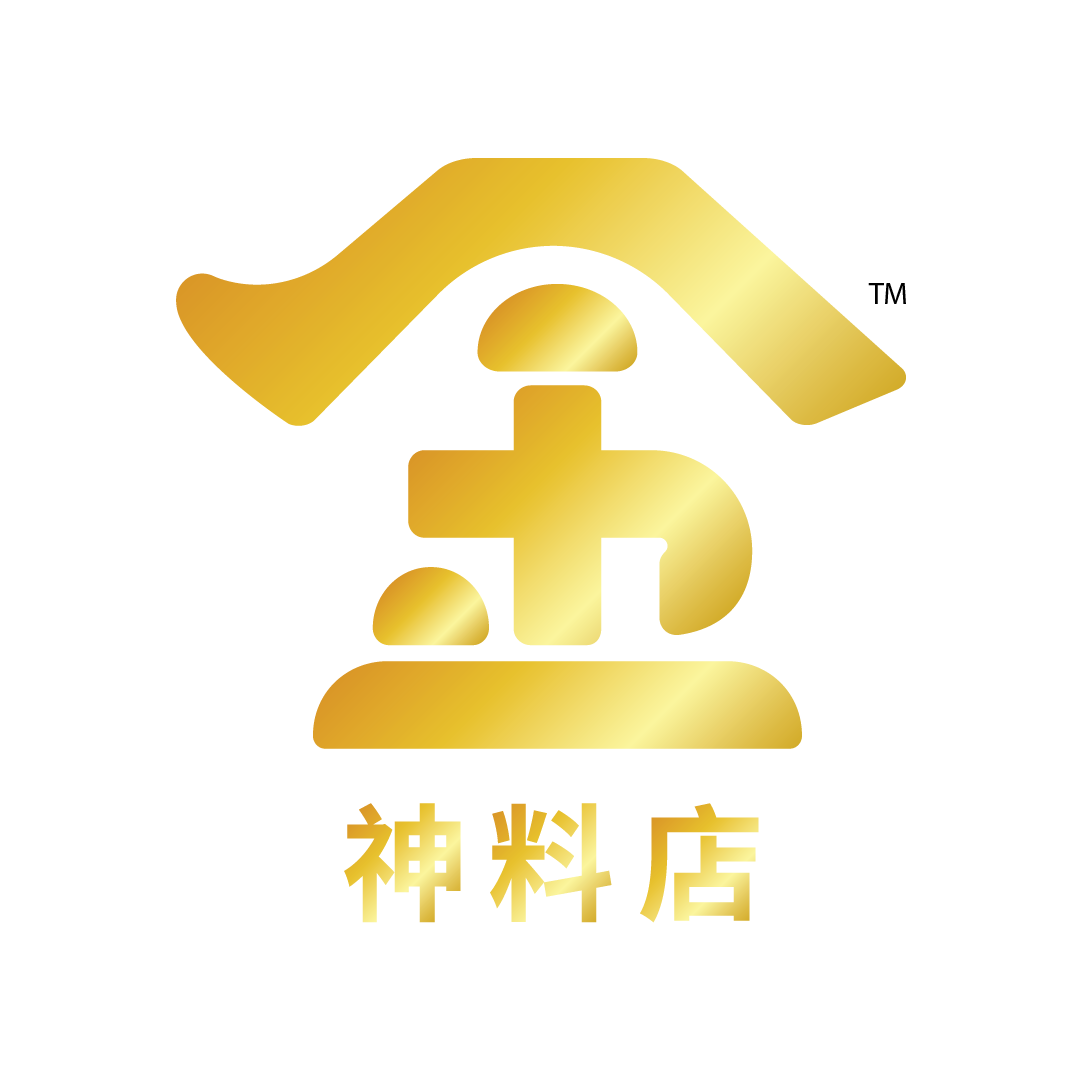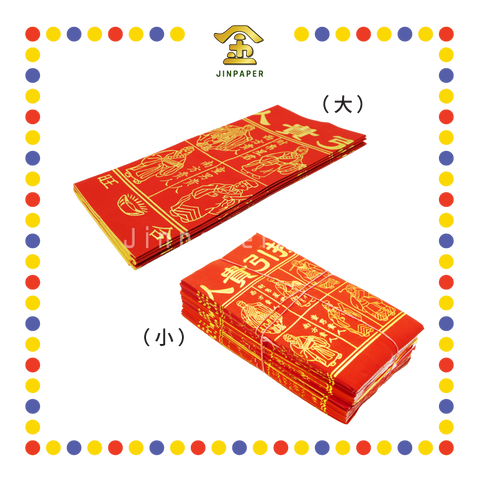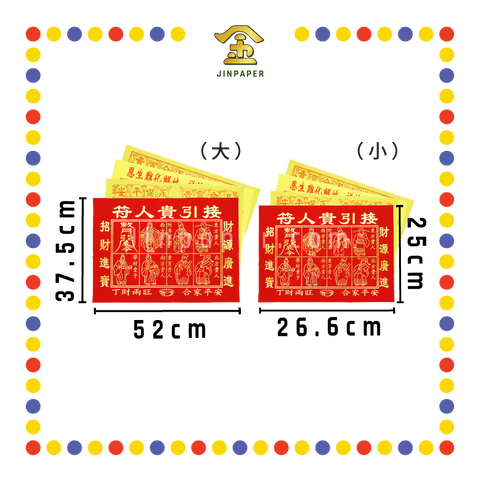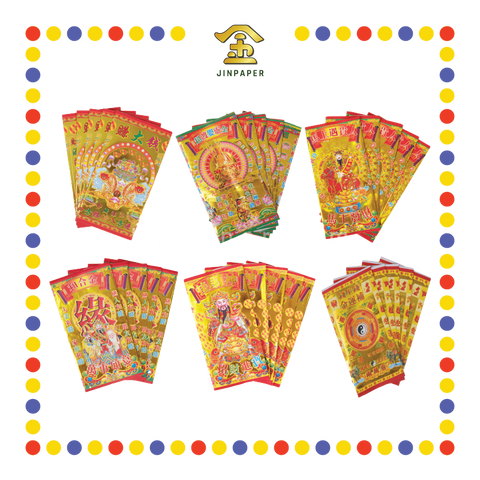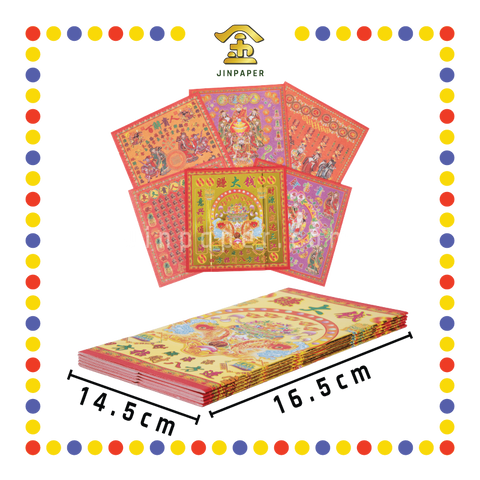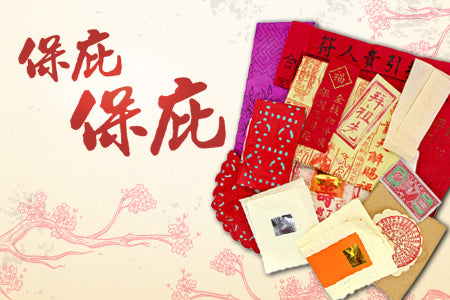When to Invite God of Wealth during Chinese New Year
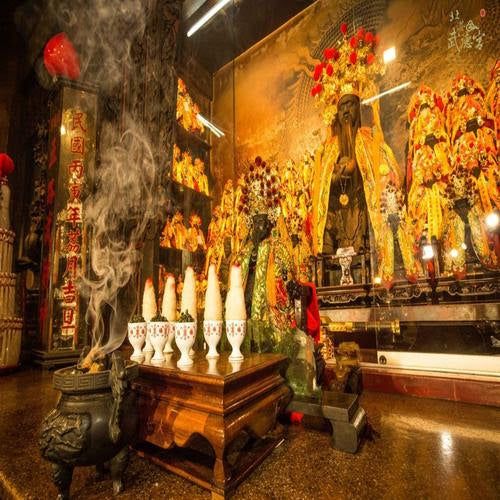
When to Invite God of Wealth during Chinese New Year | Who is God of Wealth
Cai Shen, otherwise known as the God of Wealth in English, is the deity governing financial prosperity and fortune in Chinese folklore. He can be prayed to at any time of the year, but is significantly more prominent during certain Chinese festivities such as the Chinese New Year.
In Chinese, Cai means wealth, and Shen refers to the divine. Cai Shen Ye is also an interchangeable title, with the Ye character being an honorific title for someone who’s elderly and wise, oftentimes wielding a high authority. Usually depicted riding atop a black tiger and fashioning a golden rod in his hand, Cai Shen idols can be regularly seen within the homes and temples of Chinese people, a testament to his popularity and the significance of wealth and fortune to those of us who pray to him fervently. Other times, Cai Shen can also be seen wielding an iron tool that is capable of turning iron into gold, a large golden sycee, or a basin of gold ingots.
History of the Chinese God of Wealth
There are numerous claims pertaining to the origins of the Chinese God of Wealth, and while it is not known how true some of them are, most renditions tend to converge on Caishen’s incarnation being from the early Qin dynasty.
One such example was Bi Gan, one of the most famous Caishen characters in Chinese folklore. Bi Gan was uncle to Di Xin, the last king of the Shang dynasty. Noted by Confucius as one of the “three men of virtue” of Shang, Bi Gan would often reproach his nephew for the latter’s corrupted methods. This drew considerable ire from Di Xin, who eventually sentenced Bi Gan to death by extraction of the heart, under the pretext of curiosity as to whether or not the “Sage’s heart had seven openings”. Over time, this became a popular element of debate in the context of Warring States philosophy.
The Shang dynasty soon fell after Bi Gan’s death, and he was ultimately deified as a God of Wealth and Fortune. This event gained traction amongst the populace through the famous Ming dynasty novel ‘The Investiture of the Gods’, which depicted Bi Gan’s confrontation with Daji, Di Xin’s consort who was often portrayed as a malevolent fox spirit.
Another notable persona for Caishen was Zhao Gongming. Like Bi Gan, Zhao Gongming appears in ‘The Investiture of the Gods’, and was known to be a Taoist hermit who was also close friends with General Wen Zhong of Shang. He was killed in his battle with Jiang Ziya, who at the time was helping the Zhou overthrow the Shang empire.

Zhao Gongming, Central God of Wealth. Source: JinPaper
During his subsequent visit to the temple of Yuan Shi, Jiang Ziya was rebuked for causing the death of a virtuous man. As punishment, he carried the corpse of Zhao Gongming into the temple, apologized for his misdeeds, sung praises of the latter’s virtues, and through this deified Zhao as the God of Wealth.
As a member of the celestial pantheon, Zhao Gongming was granted the title of the Military God of Wealth. He also had four subordinate gods: Chen Jiugong, the God of Attracting Wealth; Yao Shaosi, the God of Profitability; Cao Bao, the God of Collecting Valuables; and Xiao Sheng, the God of Collecting Treasures. Collectively, they are also known as the ‘Five Directions’ of the Chinese Gods of Wealth.
Why do the Chinese celebrate the God of Wealth?
As generally portrayed in classic texts and modern media alike, fortune and prosperity often play no small part when it comes to Chinese myths and folklore. This in turn, is a reflection of the significance of material wealth in the Chinese belief system. This holds especially true in modern capitalist society, where general happiness is typically associated with financial freedom.
While not necessarily everyone believes in the divine, to those who do, the God of Wealth, or God of Money as Caishen is sometimes called, is a personification of success and happiness in life. Much like how those of us in the West may call upon Lady Luck before a big venture, Caishen is the Eastern counterpart symbolizing fairly similar values. And being people who reside in Asia, Caishen naturally becomes the more familiar deity, and is why he is often prayed to amongst the Chinese, the largest ethnic group in the region.
When to invite the Chinese God of Wealth?
When it comes to praying to Caishen, there is no set date or time; one can choose to do it any time of the day, all-year round. It should be noted that however, depending on your zodiac, a feng shui master may recommend specific time periods to welcome Caishen. That being said, it’s more about best practices in order to attract Caishen’s blessings, and shouldn’t stop you from praying at other times of the day if you want to.
Caishen is most prominent during Chinese New Year, a time which marks the end of one year and the beginning of another. It should come as no surprise then, that Chinese families would want to start the new year on a good note. Some legends also say that Caishen would visit the mortal realm and inspect his followers during this time.
How to invite the Chinese God of Wealth?
When praying to Caishen during the Lunar New Year, it is good practice to clean and declutter the home several days before the celebration itself. As with inviting any guests into your house, you want to welcome Caishen into a clean and respectable environment, so it is wise to make sure that the place is free of dirt, and to finish all repairs if there are any before the day of the festivities. Aside from all the spring cleaning, you should also dress appropriately when welcoming Caishen.
As time approaches midnight of Lunar New Year’s Eve, you should start preparations to greet Caishen. You may set up candles on the dining table, making sure they are properly lit, and offer three sticks of your desired incense. Keep your main entrance doors and windows open to indicate that Caishen is welcome to come inside, and bow three times facing the entrance in honor of him. If you like, you may also recite some of your favorite mantras or prayers three times. After which, you can formally invite Caishen to visit your home, carrying prosperity and fortune into your abode and starting off your new year with some good luck. Just simply state that Caishen is welcome to enter your home and join you and your family for a New Year’s feast. Some families have the practice of setting a place at the head of the table for Caishen to dine as well. Finally, you can close the entrance doors and windows to signify that Caishen has entered your house.

Altar to welcome Caishenye during Chinese New Year Source: JinPaper
In the contexts of feng shui application, one may also opt to place depictions of the God of Wealth, whether it be in the form of paintings or statues in the home or at the office. The exact embodiment of Caishen that one chooses to pray to is largely up to personal preference, but common depictions are usually that of Zhao Gongming or Bi Gan as previously explained. Aside from these two, there is also Guan Yu and Fan Li, both famous historical figures known for their great virtue and achievements. Depending on which aspect of your life you wish to improve upon, you can place a God of Wealth statue facing specific directions on the bagua. For example, hanging a portrait of Caishen in the southeast sector of your home can help to bolster your luck when it comes to personal wealth, while putting it up in the north sector can bring in good prospects to your career and professional growth.
Do take note that there are certain restrictions when it comes to Caishen worship as it relates to feng shui application. These include:
- Placing a Caishen idol on the floor or below eye level as it is considered that you are looking down on the deity and is disrespectful;
- Setting Caishen in the bathroom, bedroom, attic, basement, laundry room or kitchen
As a general rule of thumb, your Caishen statue or portrait should be as high as you can possibly place him, as it symbolizes that he is looking after you. And for best results, it is highly recommended that he is placed in the living room or foyer. It is also imperative that you keep your Caishen idol clean and dust-free, and treat him with the respect as you would any elderly member of your family.
Conclusion
And there you have it. The significance of Caishen is all but apparent to the Chinese, who are often regular patrons of deities of fortune and prosperity. Granted, not every person subscribes to the belief, but as the clear embodiment of good fortune, it is that much easier to establish our values upon the existence of the divine over abstract chance. We hope that you’ve learned something about Chinese folklore today, and gained a deeper understanding regarding the various tales depicting the origins of some figures who came to embrace the title of Caishen.
As always, for more interesting articles on Chinese religious practices and customs, make sure to keep an eye on JinPaper, Malaysia’s number one supplier for prayer supplies! If you think there’s something we missed or if there are any topics you would like us to discuss next, drop us a comment below and let us know!
